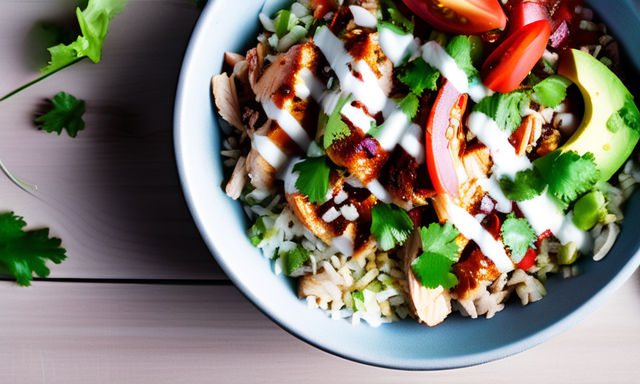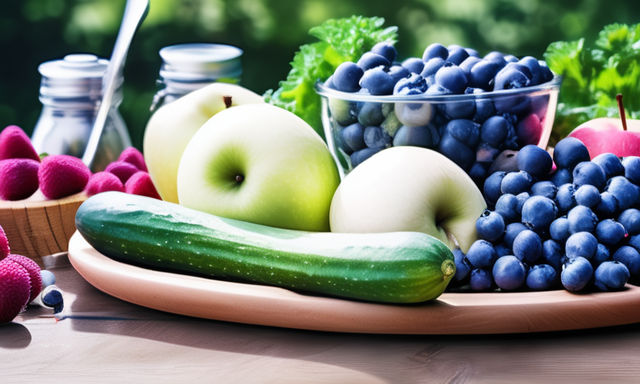Low Potassium Foods: A Guide to Managing Potassium Levels
Potassium is an essential mineral that plays a vital role in various bodily functions, including muscle contractions, nerve signaling, and fluid balance. While adequate potassium intake is crucial for overall health, some individuals may need to limit their potassium intake due to certain medical conditions, such as kidney disease or specific medications. In this guide, we'll explore the importance of potassium, common reasons for limiting potassium intake, and provide a list of low potassium foods to help you manage your potassium levels effectively.

Understanding Potassium and Its Role in the Body
Potassium is an electrolyte that helps regulate fluid balance, maintain proper muscle function, and support nerve transmission. It also plays a crucial role in controlling blood pressure and heart rhythm. Most healthy individuals can meet their potassium needs through a balanced diet that includes a variety of fruits, vegetables, dairy products, and lean proteins.
Reasons for Limiting Potassium Intake
While potassium is essential for overall health, certain medical conditions or medications may require individuals to limit their potassium intake. Conditions such as chronic kidney disease (CKD) can impair the body's ability to excrete potassium properly, leading to elevated potassium levels in the blood, known as hyperkalemia. Additionally, some medications, such as certain blood pressure medications and potassium-sparing diuretics, can also increase potassium levels in the blood.
Benefits of Low Potassium Foods
Incorporating low potassium foods into your diet offers several benefits, including:
-
- Kidney Health: For individuals with kidney disease or impaired kidney function, limiting potassium intake can help prevent further kidney damage and reduce the risk of hyperkalemia (high potassium levels).
-
- Heart Health: High potassium levels can affect heart rhythm and increase the risk of cardiovascular complications. Consuming low potassium foods can support heart health and reduce the risk of heart-related issues.
-
- Blood Pressure Management: Potassium plays a role in regulating blood pressure levels. Consuming a diet rich in low potassium foods can help maintain healthy blood pressure levels and reduce the risk of hypertension.
Low Potassium Foods: What to Include
Low potassium foods are those that contain less than 200 milligrams of potassium per serving. For individuals who need to reduce their potassium intake, incorporating low potassium foods into their diet is essential. Here are some examples of low potassium foods to consider:
-
- Fruits: Opt for fruits like apples, berries, grapes, and peaches, which are lower in potassium compared to bananas, oranges, and dried fruits.
-
- Vegetables: Enjoy vegetables such as bell peppers, cabbage, cauliflower, cucumber, and green beans, which are lower in potassium compared to potatoes, tomatoes, and spinach.
-
- Protein Sources: Include lean protein sources like chicken, turkey, fish, and eggs in your diet. These options are lower in potassium compared to high potassium sources like beef, pork, and certain types of seafood.
-
- Grains and Starches: Choose low potassium grains and starches such as white bread, rice, pasta, and refined cereals over whole grains and whole wheat products.
-
- Dairy Alternatives: Opt for low potassium dairy alternatives like rice milk, almond milk, and coconut milk instead of cow's milk and dairy products.
Incorporating low potassium foods into your diet can be easy and delicious. Try adding some of the following low potassium foods to your meals and snacks:
- - Grilled Chicken Breast: Lean proteins like grilled chicken breast are naturally low in potassium and can be enjoyed as part of a balanced meal.
- - Steamed Green Beans: Green beans are a nutritious and low potassium vegetable that can be steamed and seasoned for a tasty side dish.
- - Fresh Berries: Berries like strawberries, blueberries, and raspberries are not only low in potassium but also packed with antioxidants and fiber.
- - Cauliflower Mash: Swap traditional mashed potatoes for cauliflower mash, a low potassium alternative that's just as creamy and satisfying.
While incorporating low potassium foods into your diet is essential, it's also crucial to maintain a balanced and varied diet to ensure you're getting all the nutrients your body needs. Be sure to include a variety of foods from different food groups, and consult with a healthcare professional or dietitian for personalized guidance.

Explore Our Low Potassium Meal Plan
Ready to embark on your low potassium journey? Our 7-day Low Potassium 2000 kcal Plan is specifically designed to support individuals who need to limit their potassium intake. With delicious and nutritious meals crafted with low potassium ingredients, it's the perfect way to maintain optimal potassium levels while enjoying a variety of flavorful foods. Click here to learn more and start your journey to better health with our Low Potassium Meal Plan!
Disclaimer: Always consult with a healthcare professional before making significant changes to your diet or lifestyle, especially if you have any underlying health conditions or concerns. The information provided in this article is for educational purposes only and should not be construed as medical advice.
References
1. Farapti F, Buanasita A, Atmaka DR, Setyaningtyas SW, Adriani M, Rejeki PS, Yamaoka Y, Miftahussurur M. Potassium intake is associated with nutritional quality and actual diet cost: a study at formulating a low sodium high potassium (LSHP) healthy diet. J Nutr Sci. 2022 Feb 16;11:e11. doi: 10.1017/jns.2021.104. Erratum in: J Nutr Sci. 2024 Feb 08;13:e7. PMID: 35291270; PMCID: PMC8889219.
2. 40 low potassium fruits and vegetables to add to your grocery list. (2024, February 28). National Kidney Foundation. https://www.kidney.org/newsletter/40-low-potassium-fruits-and-vegetables-to-add-to-your-grocery-list
3. East Suffolk and North Essex NHS Foundation Trust. (2024, January 8). Low potassium diet - East Suffolk and North Essex NHS Foundation Trust. https://www.esneft.nhs.uk/leaflet/low-potassium-diet/
4. Kardalas E, Paschou SA, Anagnostis P, Muscogiuri G, Siasos G, Vryonidou A. Hypokalemia: a clinical update. Endocr Connect. 2018 Apr;7(4):R135-R146. doi: 10.1530/EC-18-0109. Epub 2018 Mar 14. PMID: 29540487; PMCID: PMC5881435.
5. Low potassium (hypokalemia). (2022, June 23). Mayo Clinic. https://www.mayoclinic.org/symptoms/low-potassium/basics/causes/sym-20050632
6. Clegg DJ, Headley SA, Germain MJ. Impact of Dietary Potassium Restrictions in CKD on Clinical Outcomes: Benefits of a Plant-Based Diet. Kidney Med. 2020 Jun 15;2(4):476-487. doi: 10.1016/j.xkme.2020.04.007. PMID: 32775988; PMCID: PMC7406842.
7. How potassium can help control high blood pressure. (2023, July 22). www.heart.org. https://www.heart.org/en/health-topics/high-blood-pressure/changes-you-can-make-to-manage-high-blood-pressure/how-potassium-can-help-control-high-blood-pressure
8. Office of Dietary Supplements - Potassium. (n.d.). https://ods.od.nih.gov/factsheets/Potassium-HealthProfessional/
9. Potassium in your CKD diet. (2024, March 4). National Kidney Foundation. https://www.kidney.org/atoz/content/potassium-ckd-diet
Ready to level-up?
Create meal plans 10x faster, follow up with your clients through our mobile app, and never struggle with meal planning or recipe management again.